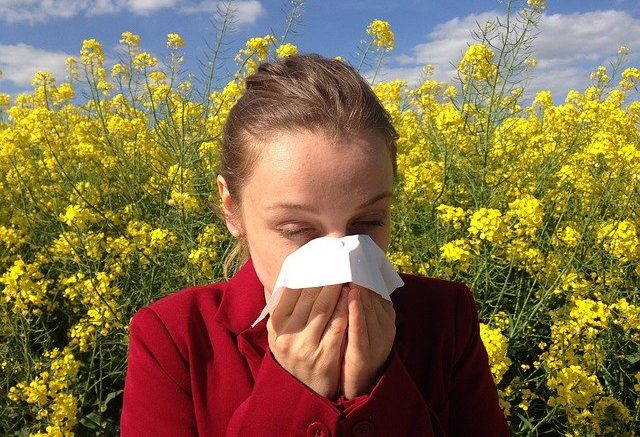Itchy eyes. Runny nose. Some of us can’t stop sneezing. Are you familiar with these signs of seasonal allergies? Do you want to excuse yourself from constant worrying and want to be able to enjoy the season? Then you are at the right place.
We are about to discuss strategies to find relief from spring allergies before they completely take over.
According to research conducted in 2021, the most frequent type of allergy experienced by individuals was an allergy to pollen. It was reported by almost 44 percent of allergic people. Hay fever and other seasonal allergic reactions are also quite frequent.
Every year, more than 59% of Americans deal with different allergies. Many of them suffer from yearly allergies to pollen. Living with spring or fall allergies in American cities may be difficult.
Those living in areas like Cookeville, Tennessee, are no strangers to the misery of springtime allergies. Several cities and regions in Tennessee consistently rank high on annual lists of those most severely affected by seasonal allergies.
If you are visiting Cookeville to relax by some lakes and are afraid of allergy season, don’t worry. We are listing ways you can prevent allergies, but if you still get caught up, consider visiting a primary and urgent care clinic in Cookeville, TN, to seek medical attention.
Before we talk about preventing springtime allergies, let’s understand the reason behind these allergies:
Reasons For Seasonal Hay Fever Symptoms
The answer to this question is dependent on the time of year. Because the allergen that causes the response is present in the environment, seasonal allergies are caused by environmental allergens. But one thing is for sure, our body’s response to allergies is always draining.
Symptoms of spring allergies, which normally begin in February and persist into early summer, are quite consistent. Allergens in these popular plants become active at the same time as the grass and trees. Mowing the lawn for the first time in the spring coincides with the peak of allergy season.
Tree pollen is the most common allergen in the early spring, whereas grass pollen is the most common allergen in the latter spring and summer. Ragweed is the most prevalent allergen in the fall, generally triggering symptoms from August through November.
What Symptoms Can You Expect From Seasonal Allergies?
If you have a pollen allergy, your body will respond when it encounters pollen. Sadly, it can cause a wide variety of uncomfortable (but recognizable) symptoms, such as:
- Burning sensation in the throat, tongue, or lips
- Nasal stuffiness
- Coughing and sneezing
- Sneezing
- Rheumy, teary eyes
The presence of seasonal allergens may trigger an asthma attack in people who are allergic to them. Studies show that in some cases, these symptoms are similar to those of COVID-19, which has become all too common.
How can you know whether it’s just seasonal allergies or if it’s anything more serious? It’s important to see a doctor if you develop a fever. It is more likely for a virus to cause fever than for allergies to do so.
How To Get Rid Of Allergies?
If you’ve spent any time outside lately, you’ve probably seen the trees and shrubs blooming and the grass becoming green. This is the worst time of year for those of us who suffer from spring allergies.

Nonetheless, you are not helpless in the face of bothersome allergy symptoms. Do the following instead:
Get Familiar With The Allergens That Trigger Your Reactions
If you experience allergies frequently, you may have seen a specialist narrow down the specific triggers. However, you may already know which season brings on your allergy symptoms, grass growth or tree budding, even if you haven’t undergone an allergy test.
Check Pollen Counts In Your City:
If you have an allergy and have a broad notion of what triggers your symptoms, checking the daily pollen count on the weather forecast might be helpful. It’s probably best to limit time spent outdoors and keep windows and doors closed if the pollen count is high. Instead of depending on fresh air from the outside, turn on your air conditioner.
Take Antihistamines Beforehand
During the peak of spring allergy season, it may be helpful to take an over-the-counter (OTC) or prescription (prescription) antihistamine or nasal spray daily. As a result, this may prevent the onset of allergy symptoms.
Don’t Let The Allergies In
Outdoor pollen is the primary allergen associated with the changing seasons. Close all the windows and doors you can. If you suffer from allergies, it is recommended that you take a shower upon returning home from time spent outside, or at the very least, take off your shoes and change into clean ones. To reduce the amount of pollen in the house, wipe down your dogs as soon as they enter.
Change Air Filters
Have you recently replaced the air filter in your house? If you have any doubts, it’s time for a switch. In doing so, you will remove allergens such as pollen from the air in your house. Studies show that people who use air filters are less prone to allergies. `
Allergies hurt millions of people in the US. It causes them to lose out on sleep and miss out on work. But there are ways we can prevent that. If you apply all the things that you learned in this blog, you will be able to deal with your allergies in a much better and healthier way.
